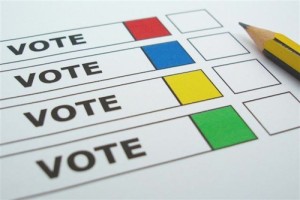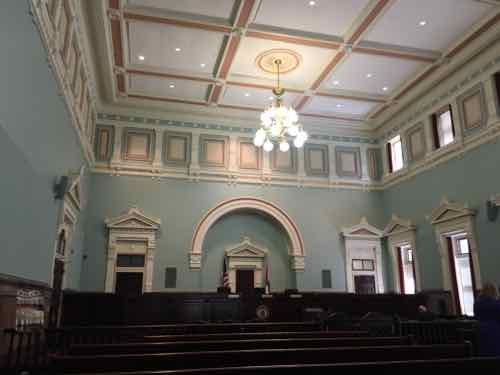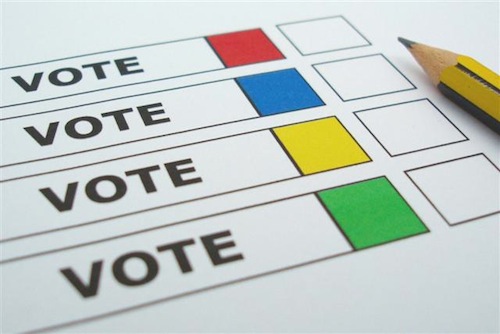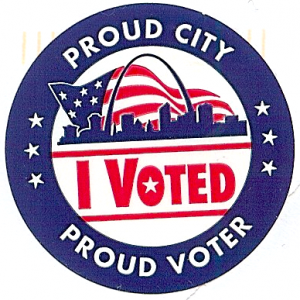Researching for the General Election April 2, 2019
I’m preparing to mail in my absentee ballot for next month’s general election. Yes, another election. Remember, last month was just so the various political parties could select their nominee. Next month nominees will face each other in the general.
At least they would if we didn’t live in a one party city.
It continues to be foolish why continue having a partisan primary followed by an even lower turnout general election. The democratic nominees for president of the board of aldermen and the 14 even-numbered wards will all win, only a few have any marginal challenge.
But on the upcoming ballot is two open school board seats, one junior college trustee seat, and a proposition. See sample ballot.

SCHOOL BOARD
Seven candidates for two school board seats:
- ADAM LAYNE
- DAVID MERIDETH
- LOUIS CLINTON CROSS, III
- BARBARA ANDERSON
- WILLIAM [BILL] HAAS
- TRACEE A. MILLER
- DAN MCCREADY
This election is more important than many prior school board elections.
Seven candidates are running for the St. Louis Board of Education next month. It’s very likely those elected to the board on April 2 will be handed back power over St. Louis Public Schools later this year. After nearly 12 years of state control, the state school board is expected to vote to reinstate the elected board in April.
(St. Louis Public Radio — recommended)
None of the seven are incumbents. I’m still researching, I’ve eliminated three so far. The West End Word has a brief summary of all 7 here. Vote411 has info here.
JUNIOR COLLEGE (only applies to some city voters)
- PAULA M. SAVARINO
- ANNE ADAMS MARSHALL
Vote411 has info on both here.
PROPOSITION S
Metropolitan St. Louis Sewer District Proposition S
Simple majority required.Ballot wording: Shall the Metropolitan St. Louis Sewer District (MSD) charge a Stormwater Capital Rate upon all customers, whether public or private, within the District based on the amount of impervious area on the real property of each customer for the purpose of providing revenue to fund capital improvements for flooding and erosion control, as set forth in the following schedule? Single-family Residential (per month) for the following tiers, Tier 1 (200-2,000 sq. ft. of impervious area) $1.42 Tier 2 (2,001-3,600 sq. ft. of impervious area) $2.25 Tier 3 (3,601-6,000 sq. ft. of impervious area) $3.74 Tier 4 (over 6,000 sq. ft. of impervious area) $6.84 Commercial and Multi-Family Residential (per month) $2.25 per 2,600 sq. ft. of impervious area.
Summary: The measure would allow the district to impose a new stormwater charge to generate money to addressing local and regional flooding and stream erosion that threaten structures, roads or yards. The charge would be based on the amount of a property’s surface area that does not absorb rainwater. Funds would be used for property buyouts, rain scaping, natural creek bank stabilization, stormwater drainage systems and other improvements. All public and private property in MSD’s service area, including properties owned by governmental or nonprofit entities and those not receiving MSD wastewater services, would be subject to this charge. If passed, the charge would raise $30 million annually and the average residential property owner would pay an additional $27 per year.
Proponents say that the increased revenue is necessary to address local and regional flooding, erosion issues and to improve water quality for stormwater. They also say that the proposed rate imposes a fair and reasonable burden on all classes of ratepayers with an incentive system. Opponents say that there are no detailed engineering plans on the proposed projects and that there is insufficient funding for the projects proposed. They also say that the projects are not required by any regulation or law. (Vote411)
No clue how I’m going to vote on this.
— Steve Patterson



 Less than 10% of the city’s 181,967 registered voters actually voted in Tuesday’s partisan primary, but to get the bigger picture we need to delve deeper into the numbers. A total of 17,291 ballots were cast among the three parties selecting their candidates for the general election next month. As expected, the overwhelming majority selected a Democratic ballot:
Less than 10% of the city’s 181,967 registered voters actually voted in Tuesday’s partisan primary, but to get the bigger picture we need to delve deeper into the numbers. A total of 17,291 ballots were cast among the three parties selecting their candidates for the general election next month. As expected, the overwhelming majority selected a Democratic ballot: